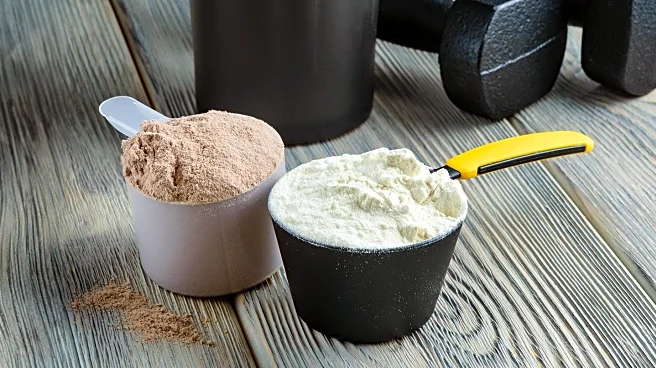What's Happening?
Creatine, traditionally used by athletes for muscle growth and exercise performance, is gaining popularity in broader wellness contexts. It is now being incorporated into Pilates studios, TikTok wellness trends, and longevity retreats. Creatine works by regenerating ATP, the primary energy source for muscle contractions, and is particularly beneficial for short, intense activities. Recent studies suggest creatine may also support brain health, potentially reducing mental fatigue and improving memory, especially in groups with lower baseline creatine levels.
Why It's Important?
The expanding use of creatine highlights a shift in consumer attitudes towards supplements that offer both physical and cognitive benefits. This trend could lead to increased demand for creatine products, impacting the supplement industry and encouraging further research into its broader applications. As creatine becomes more mainstream, it may influence public health strategies, particularly for aging populations and those recovering from injuries. The growing interest among women, especially during perimenopause and menopause, underscores its potential role in addressing age-related muscle loss and cognitive changes.
Beyond the Headlines
The rise of creatine in non-traditional settings raises questions about the long-term effects of widespread supplementation. Ethical considerations regarding marketing practices and the regulation of dietary supplements may come to the forefront. As creatine's benefits for brain health are explored, it could lead to new therapeutic approaches for mental health conditions. The cultural shift towards embracing supplements for holistic wellness reflects broader societal changes in health consciousness and self-care practices.











